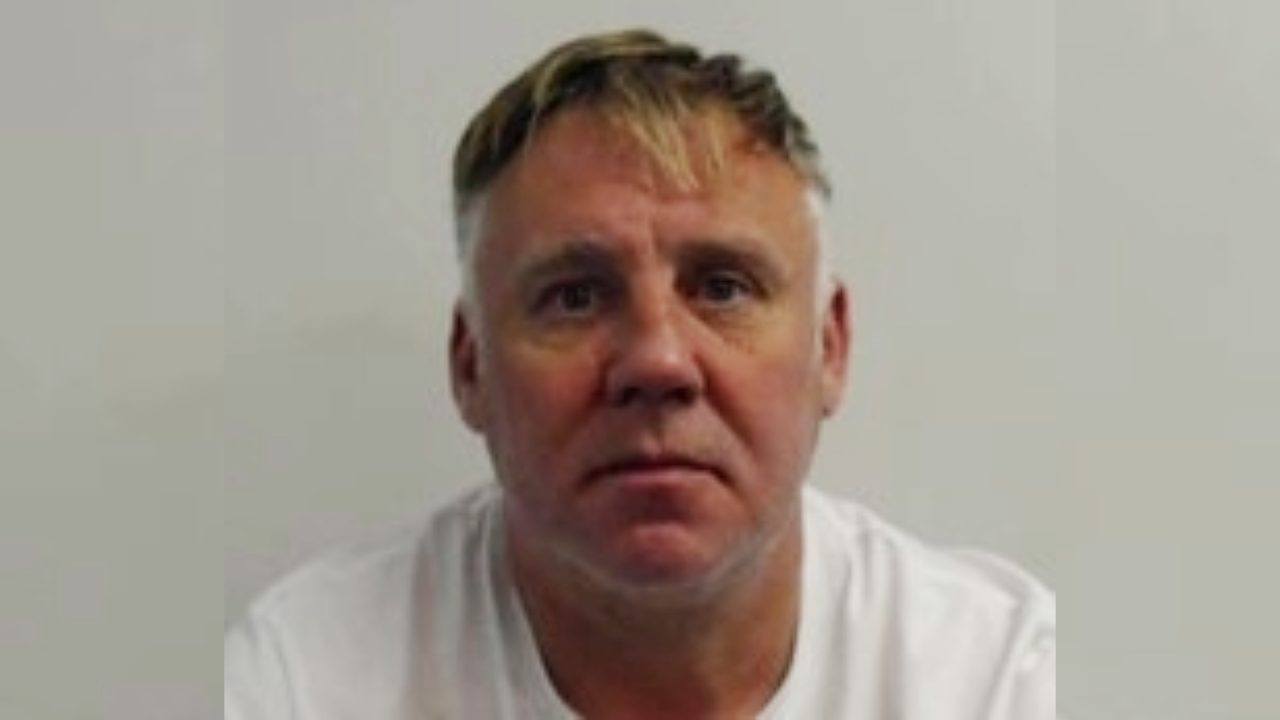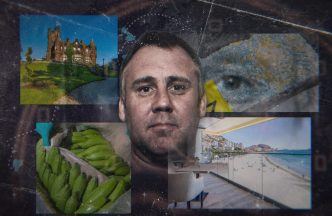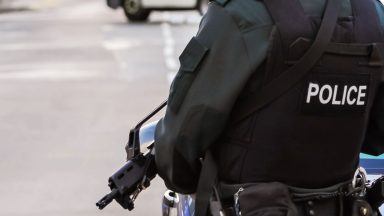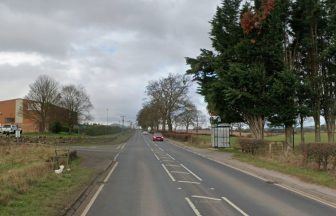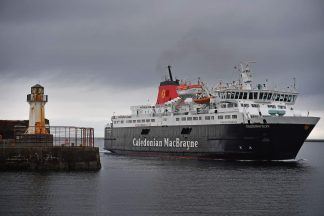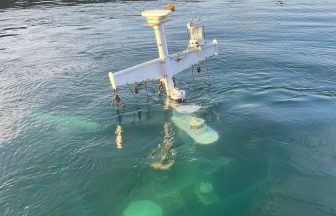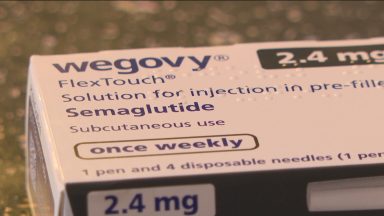One of the UK’s most notorious gangsters has been jailed for running an international drug smuggling scheme that saw nearly a tonne of imported cocaine hidden in a banana shipment.
James Stevenson, known as “Iceman”, admitted to masterminding the importation from South America which was seized by Border Force in Dover in September 2020 and addressed to a Glasgow fruit merchant.
Following the seizure, NCA and Police Scotland officers carried out several raids.
It came after French law enforcement was able to break into the encrypted communications platform EncroChat leading to hundreds of arrests across the UK.
Stevenson, of Rutherglen, became one of Scotland’s most wanted men.
During a hearing at the High Court in Glasgow on Wednesday, Stevenson was sentenced to 12 years in prison for directing the cocaine smuggling operation and a further eight years for running an illicit pill factory.
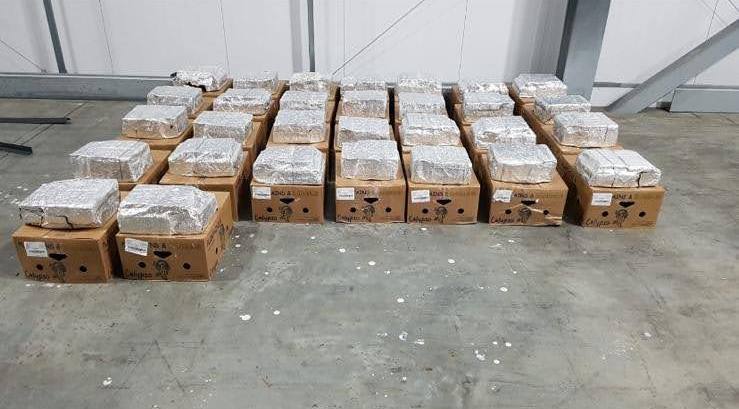 NCA
NCAThe stocky gangster with a scar on his face had previously pled guilty to money laundering charges worth more than £1m in 2007.
At the time, he was described as being like Tony Soprano – the mafia boss from the hit HBO TV series The Sopranos, with anger-management and anxiety issues.
He was jailed but was released six years later.
In June 2020, Stevenson became wanted in connection with the discovery of approximately 28 million etizolam “street valium” tablets that were seized following a raid on a suspected pill factory in Kent.
The banana shipment full of cocaine was discovered the following September while Stevenson was on the run.
In January 2022, the National Crime Agency (NCA) released a mugshot of him as one of the UK’s 12 most wanted men.
At the time, the NCA and Police Scotland said they would not rest until his capture.
Weeks later, Stevenson was arrested in the Netherlands while out jogging in Bergen op Zoom.
He was extradited to the UK and was put on trial at the High Court in Glasgow along with five other men.
The 59-year-old faced 14 charges including smuggling cocaine, supplying etizolam, and involvement in serious organised crime. He denied all the charges.
The court heard it took officers three days to search through the near-tonne of cocaine hidden in banana boxes sent from Ecuador.
On the third day of evidence, two of Stevenson’s co-accused, Gerard Carbin, 44, and Ryan McPhee, 34, admitted a charge of being involved in organised crime by being involved in the production and supply of etizolam.
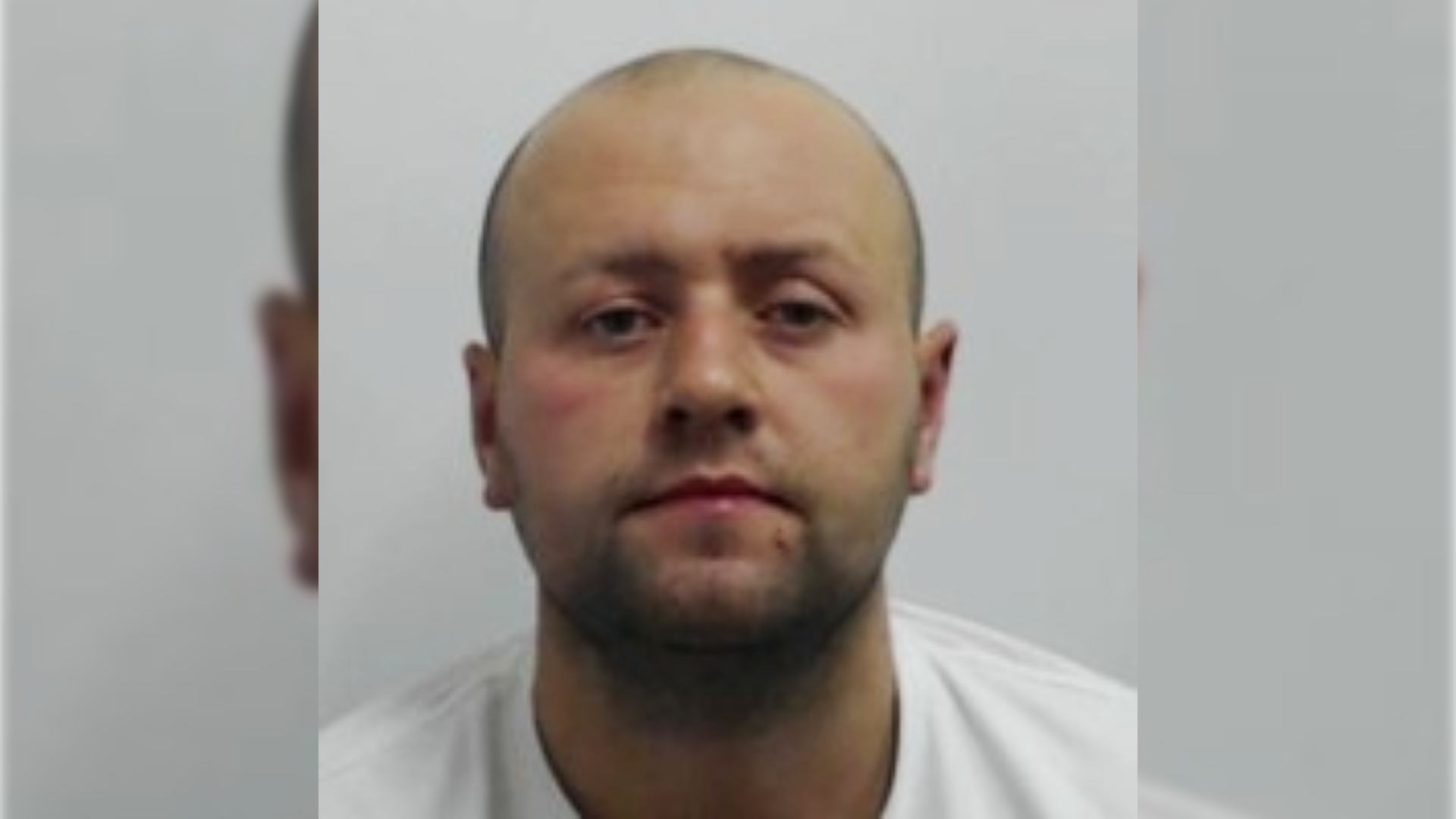 Police Scotland
Police ScotlandThe next day, Stevenson admitted two charges – of directing a serious criminal offence of importation of cocaine, and of being involved in organised crime through the production and supply of etizolam.
His not guilty pleas to the remaining charges were accepted by the Crown.
Co-accused Paul Bowes, 53, pleaded guilty to a charge of being involved in organised crime by being involved in the production and supply of Class C drug etizolam at a string of premises including the Nurai Island Resort in Abu Dhabi, in London and Rochester, Kent.
Fruit market trader David Bilsland, 67, entered a guilty plea to a charge of agreeing to import cocaine, after the court heard evidence that he told a refrigeration engineer he had “done something stupid” and was “going to jail for a long time”.
Co-accused Lloyd Cross, 32, entered a guilty plea on the first day of the trial, August 7, with his defence saying the drugs “could achieve a value of £76m”.
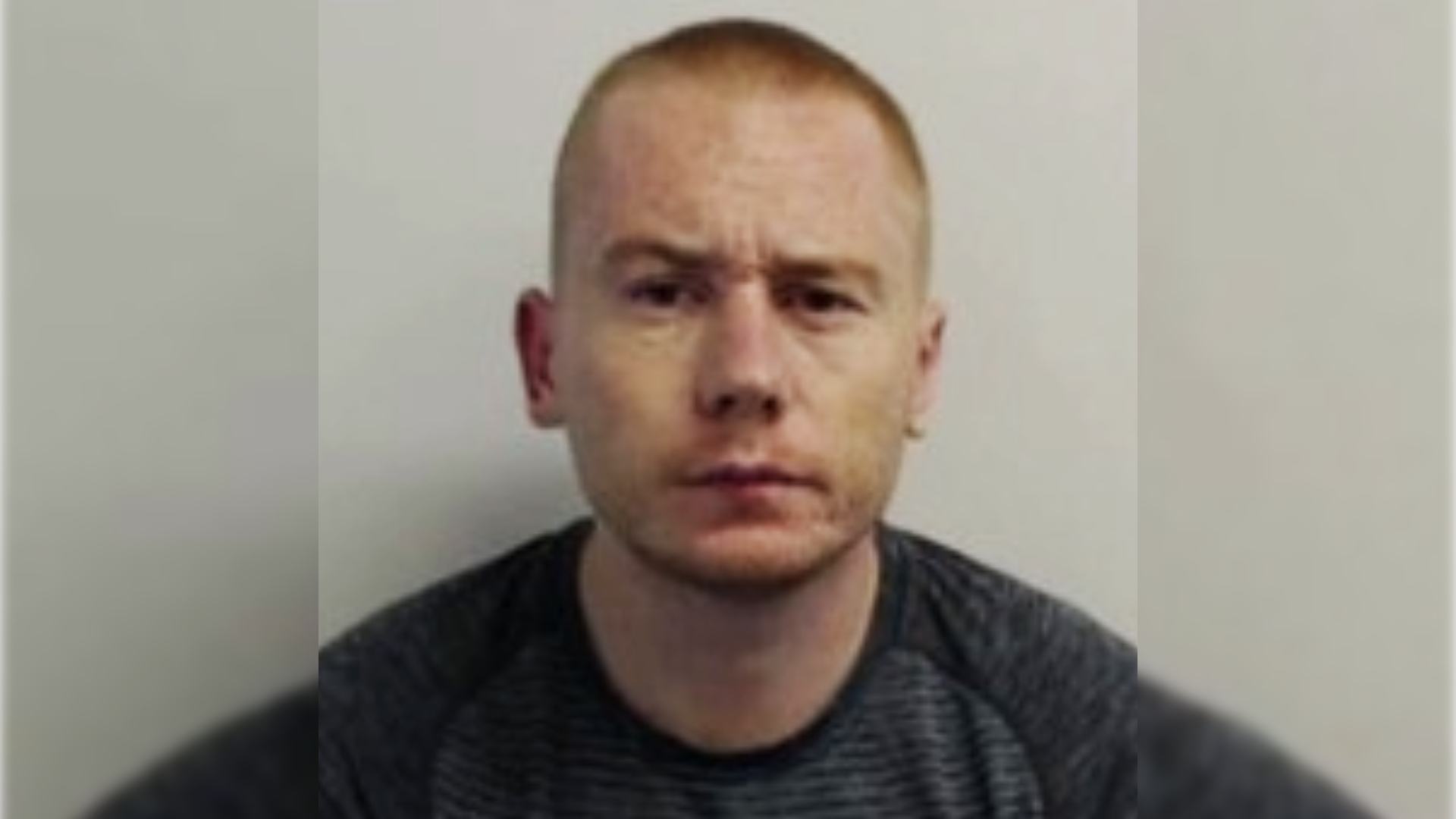 Police Scotland
Police ScotlandProsecutors accepted not guilty pleas from Garry McIntyre, 43, and he was allowed to walk free from court.
David Bilsland, 68, Paul Bowes, 53, and Lloyd Cross, 32, were each sent to prison for six years.
Gerard Carbin, 45, was sentenced to seven years and Ryan McPhee, 34, to four years.
Detective chief superintendent Dave Ferry, Police Scotland’s head of organised crime, said: “The sentencing of Stevenson, Bilsland, Bowes, Carbin, McPhee and Cross following their guilty pleas sends out a clear message that the activities of those who think that they can bring illegal drugs into our communities will not be tolerated.
“I want to acknowledge the hard work and diligence shown by the officers who investigated the group and provided the evidence in what was a complex investigation and shows the value of working with our law enforcement partners including the National Crime Agency and those abroad.
“It also shows Police Scotland’s unwavering commitment to the Serious Organised Crime Taskforce and its national strategy.
“This multi-agency operation, which spanned several countries, prevented a huge haul of illegal drugs reaching our communities and will have undoubtedly saved lives. However, we cannot be complacent, and our officers will continue their work to ensure Scotland remains a hostile environment for organised criminals.”
Follow STV News on WhatsApp
Scan the QR code on your mobile device for all the latest news from around the country


